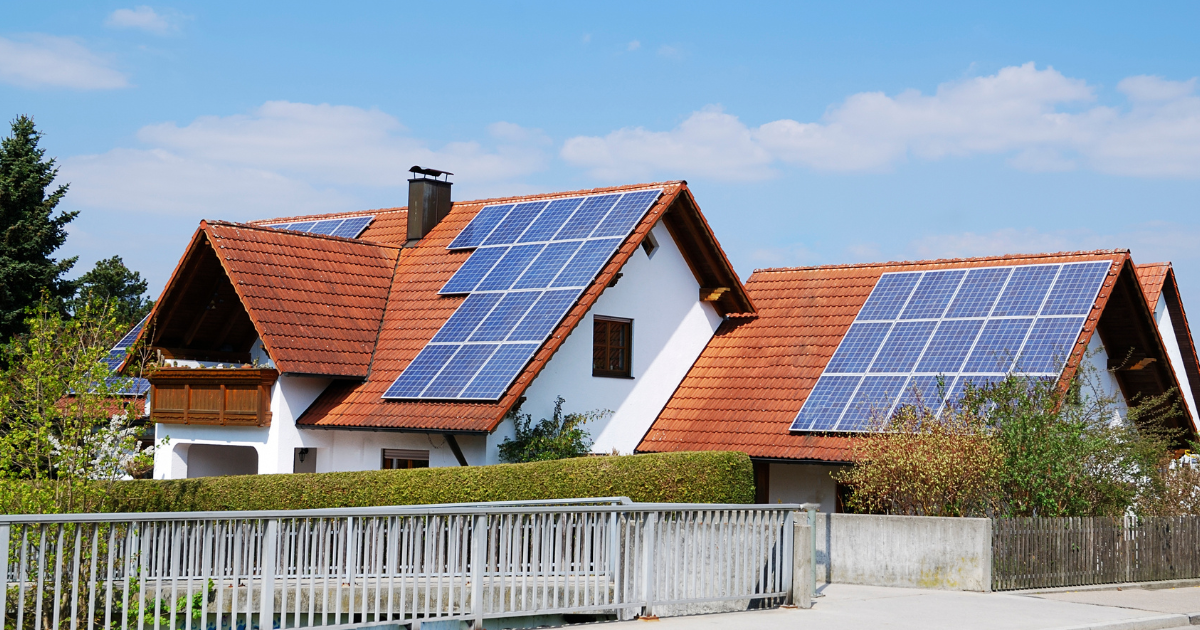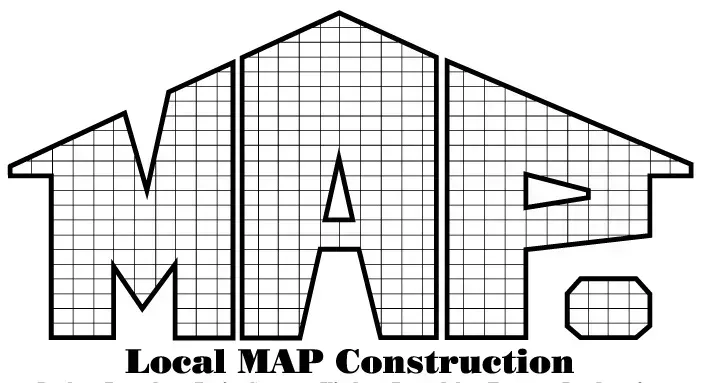Why Solar Energy for Your Home is The Smartest Choice
Are high electric bills and frequent power outages becoming a constant headache? Traditional energy sources are not only costly but also unreliable. Luckily, there’s a game-changing solution—solar energy for your home. By switching to solar panels, you can reduce your energy expenses and take control of your power supply.
Solar power isn’t just about cutting costs. It’s about making a positive environmental impact. Plus, with federal investment tax credits and flexible financing terms, going solar is now more accessible. Ready to take charge of your energy future? Solar energy offers a clean, dependable solution for your home.
What is Solar Energy for Homes?

Solar energy for homes is the process of using sunlight to generate electricity for your household. Solar panels are installed on your roof or property. These panels capture sunlight and convert it into electricity to power your home’s appliances and systems.
Solar energy is important since it is a renewable and eco-friendly alternative to traditional energy sources. It reduces the need for fossil fuels and helps lower your electricity bills. Solar power reduces your carbon footprint while supporting a cleaner and more sustainable energy future.
What are The Different Types of Solar Energy Systems You Can Use for Your Home?
When considering solar energy for your home, it's important to understand the different types of solar energy systems. Each system has its own benefits and potential drawbacks. The best choice depends on your specific energy needs, location, and financial situation.
Grid-Tied Solar Systems
Grid-tied systems are the most common type of solar energy system for homes. These systems connect to the local utility grid. During the day, you use solar power, and at night or when solar production is low, you draw electricity from the grid.
Any extra energy your solar panels generate is sent back to the grid. This often results in credits on your utility bill through net metering. Grid-tied systems are also more affordable to install since they don’t require expensive batteries for energy storage.
However, one limitation is that they don’t usually provide power during outages unless paired with a battery backup.
Off-Grid Solar Systems
Off-grid systems work independently from the utility grid and rely on solar panels for electricity. These systems usually include battery storage to save extra energy for use at night or on cloudy days.
Off-grid systems provide complete energy independence. This makes them a great option for remote areas where grid access is unavailable or unreliable. However, they are more expensive to install due to the cost of batteries and other essential equipment.
Careful management of energy use and battery levels is necessary to ensure a continuous power supply.
Hybrid Solar Systems
Hybrid systems combine the benefits of both grid-tied and off-grid systems. These systems are connected to the grid but also include battery storage. This setup allows homeowners to store excess energy for later use. It ensures power availability during grid outages while still benefiting from net metering.
Hybrid systems provide greater energy security and flexibility. However, they come with a higher cost due to the extra equipment required for battery storage.
These systems are perfect for homeowners who need reliable backup power. They also offer the financial benefits of being connected to the grid. This combination makes them a great choice for those wanting both security and savings.
What is The Best Type of Solar Energy for Your Home?

For most homeowners, grid-tied solar systems are the best choice. They are cost-effective, easy to install, and offer financial benefits through net metering. With a grid-tied system, you can lower your electricity bills while still being connected to the grid. This ensures you have a reliable power source when solar energy alone isn't sufficient.
If you experience frequent power outages or have unreliable grid access, a hybrid system may be more suitable. Hybrid systems offer backup power and the flexibility to use stored energy during outages. This makes them ideal for those who value energy independence.
For homes in remote areas without grid access, off-grid systems provide complete energy independence. However, they come with a higher installation cost.
The best solar system for your home still depends on your energy needs, location, and budget. It’s best to consult a reputable solar provider to determine which system is right for you.
Why is Solar Energy for Your Home The Best Solution?
Today, rising electricity costs and the environmental harm from traditional energy sources are major concerns. Many homeowners are turning to solar energy as a smart, long-term solution. Solar power offers benefits like cost savings and reduced environmental impact.
So, why is solar energy the best choice for your home? Here are ten key reasons.
Cost Savings
Switching to solar energy can save you a lot of money. By installing solar panels, you generate your own electricity. This reduces or even eliminates your need for power from utility companies. With electricity prices rising, solar energy helps you control and stabilize your energy costs.
Federal tax credits and solar incentives can lower the initial installation costs. This makes solar energy a smart financial choice. Homeowners who install solar panels often notice lower utility bills within the first month. Over time, these savings grow, making the investment even more valuable.
Additionally, if your solar panels produce extra energy, you can sell it back to the grid. This provides extra income or credits on your utility bills.
Environmental Impact
Solar energy is a clean and renewable source of power that benefits the environment. Unlike fossil fuels, it doesn’t release harmful emissions or contribute to climate change. Solar power generates electricity without polluting the air or water. By using solar energy at home, you actively reduce your carbon footprint and help protect the environment.
Solar panels also use very little water to operate. This is a big advantage over traditional power plants, which require large amounts of water for cooling. Solar energy is more sustainable and eco-friendly. The more people adopt solar power, the less we rely on non-renewable energy sources, easing the strain on the planet’s resources.
Energy Independence
Solar energy gives you greater energy independence. By producing your own electricity, you rely less on the utility grid. This can be especially helpful during power outages or when electricity prices increase. Solar power allows you to control both your energy production and consumption.
This independence shields you from rising electricity rates. As utility companies continue to raise prices, homeowners with solar systems are protected from these hikes.
When combined with battery storage, solar panels allow you to store extra electricity for use at night or during emergencies. This can increase your energy security even further.
Increase in Property Value
Homes with solar power systems often see an increase in property value. Solar panels are considered a valuable upgrade, like a remodeled kitchen or bathroom. Potential buyers appreciate the long-term savings and environmental benefits of solar energy. These make homes more appealing in the real estate market.
Research shows that homes with solar installations sell at a higher price than those without. This added value comes from reduced utility bills and the financial incentives of owning a solar power system. Installing solar panels boosts your home's value while you live there and when you're ready to sell.
Low Maintenance
Solar panel systems are durable and need very little maintenance. Once installed, they need minimal upkeep and can last for over 25 years. You usually only need to clean them to remove dust and debris. Inspections by a professional are also recommended to keep the system running efficiently.
The low maintenance is one of the main reasons homeowners choose solar panels. Unlike other energy solutions that may need frequent repairs, solar panels keep working with little effort. They provide a convenient and reliable way to power your home year after year.
Technological Advancements
Recent advancements in solar technology have made solar panels more efficient and affordable. Solar systems are now more adaptable to different types of homes. Innovations like solar shingles blend with traditional roofing materials. Improved battery storage also allows homeowners to better customize their solar setups.
These improvements allow solar energy systems to be installed in more homes. Even homes with limited roof space or challenging orientations can now benefit from solar power. As panel efficiency improves, homeowners can generate more electricity with fewer panels. This makes solar energy a practical option for many types of properties.
Government Support
Government programs, like federal tax credits and state incentives, have made solar energy more affordable. Local rebates can also help lower the upfront cost of installing solar panels. This support makes it easier for families to switch to solar energy.
In some cases, homeowners can save thousands of dollars through these incentives and tax breaks. This makes solar energy a more appealing financial option.
Financing options, like power purchase agreements (PPAs) and solar leases, also help. Homeowners can go solar with little or no upfront cost. Instead of paying for the panels, they pay for the electricity generated. This makes solar energy more affordable without the high initial expense.
Scalability
Solar energy systems are very scalable. You can start with a basic setup and expand it as your energy needs increase. Whether you install a few panels or a full solar array, your system can grow over time.
As your household grows or you add new appliances, you can simply add more panels to meet your energy demands. This flexibility makes solar energy a versatile option that can adjust to your changing lifestyle and needs.
Contribution to The Community
Adopting solar energy not only benefits your home but also supports the broader community. The growth of the solar industry creates local jobs and helps boost the economy. By reducing your reliance on the grid, you also lower the overall demand. This decreases the chances of blackouts and improves grid stability for everyone.
As more people in your community switch to solar, it sets a positive example and encourages wider adoption. This can help drive down costs for others. Solar energy isn’t just a personal decision. It’s a solution that benefits the entire community by promoting sustainability and energy independence on a larger scale.
Future-Proofing Your Home
As electricity prices rise and environmental concerns grow, homes with solar power are set for the future. Investing in solar energy now ensures your home stays energy-efficient and cost-effective for years to come. As technology advances, your solar system can adapt and integrate with innovations. This keeps your home at the forefront of energy efficiency.
Solar energy also prepares your home for changes in energy policies or regulations. As governments promote cleaner energy, having a solar system ensures your home is prepared. This allows you to benefit from future incentives and technological advancements.
What are the Different Factors You Should Consider Before Installing Solar Energy for Your Home

While solar energy offers many benefits, some factors must be considered before making the switch. With the right information and planning, these challenges can be managed effectively.
Below, we cover key considerations when thinking about installing solar panels for your home.
Initial Costs
The upfront cost of installing solar panels can be high. This can discourage some homeowners. However, there are ways to make solar panel installation more affordable. Federal tax credits, state solar rebates, and local solar incentives can lower the overall cost.
Homeowners can also look into financing options such as solar loans, solar leases, or power purchase agreements (PPAs). These options let you spread the costs over time. Often, this means little or no upfront payment.
By using these financial tools, solar energy for your home becomes more affordable. You can also start saving on utility bills sooner.
Installation Process
The solar panel installation process may seem complicated. But working with a reputable solar installer simplifies things. An experienced installer will assess your home’s energy needs and find the best placement for your solar panels. They will also handle all necessary permits and paperwork.
It’s important to have clear communication with your installer. Discuss the timeline and any possible disruptions. This helps ensure a smooth and hassle-free installation. By choosing a reliable solar installation company, you can be confident your system will be installed efficiently and correctly.
Space and Roof Requirements
Not every home has the perfect roof for solar panel systems. Factors like roof space, shading from trees or nearby structures, and the roof's orientation can impact your solar power system’s efficiency.
If you have limited roof space, you can opt for ground-mounted solar panels. These can be placed in an open area of your property and angled for maximum sunlight. If shading or roof orientation is an issue, solar shingles or high-efficiency solar panels can still allow you to generate sufficient solar power.
Working with a skilled solar installer ensures that your system will maximize energy production, even under challenging conditions.
Maintenance Concerns
Many homeowners worry about solar panel maintenance. The good news is that solar energy systems require very little upkeep. Most solar panels need only periodic cleaning to remove dust, dirt, and debris. In areas with heavy snowfall, you may need to clear snow from your panels to keep them running efficiently.
Regular inspections by a professional solar company can help identify potential issues early. Solar panels are designed to last 25 years or more, so solar panel maintenance is minimal and cost-effective.
Energy Storage
One concern with solar energy is that solar panels only generate electricity during the day. To ensure a continuous energy supply, you may want to invest in battery storage systems. Solar batteries store excess electricity for use during the night or when sunlight is limited.
Although the initial cost of battery storage can be high, it provides energy independence. This is valuable in areas with frequent power outages. If batteries aren’t an option, net metering allows you to sell excess energy back to the grid. The electric grid can serve as a backup, helping to lower your energy bills.
Wrapping Up
Switching to solar energy offers homeowners unmatched benefits. These include lower utility bills, increased property value, and a reduced carbon footprint. With solar power, you are making a smart, long-term investment in your home.
At Local MAP Construction, we make the transition to solar energy for homes seamless and stress-free. As a trusted solar contractor in Loveland, we guide you through every step, from consultation to installation. Our experienced team ensures your solar energy system is tailored to your needs.
Ready to make the switch to solar energy?
Contact us today at 720-635-2941 for a free estimate and start your journey toward a brighter, more energy-efficient future.

